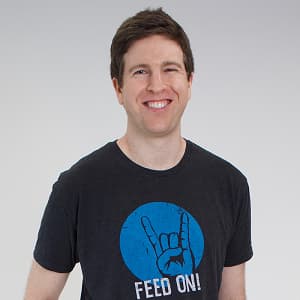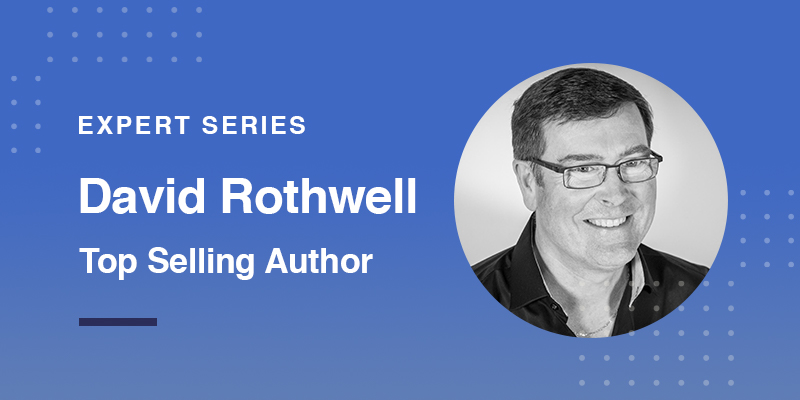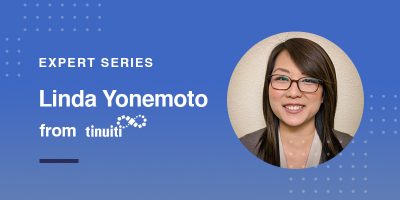David Rothwell is a Google Ads Money Expert and has 13 years digital sales experience with Google Ads, Google Merchant Center and Google Shopping. He is the author of The AdWords Bible for eCommerce on Amazon and founder of the world’s first Google Ads £20k Challenge – make up to $20k in 30 days, commission-only. David’s attitude is completely different to other agencies. He counts transactions and money instead of simply counting clicks or leads. His unique engineering approach stems from over twenty years in the IT industry including Olivetti and Hewlett-Packard, and managing European IT, telecoms and support for KLA-Tencor Corporation.
What major changes have you seen across the eCommerce digital marketing landscape in the past 5 years?
Search advertising remains a fundamentally crucial way to reach buyers. With over 65,000 Google searches a second, not showing up in search results for your products is *not* an option. When people search, they *expect and want* to see your ad. You have less than an hour to sell your product, because our sales data consistently shows that for correctly targeted campaigns, 50-70% of people will buy your product within the hour after clicking your ad. This is why display ads and remarketing campaigns work only poorly for ecommerce merchants. SEO is a long game which you don’t have the time to wait for, particularly with the short lifespan of many ecommerce products which could be obsolete before your product page even ranks in search results.
The biggest player in Search advertising is of course Google, and they have gone through many changes over the years:
- in 2013 they introduced transaction-specific conversion tracking, allowing for the first time to see exactly how much money you make from an online sales conversion on your website, and your Return on Ad Spend (ROAS); many advertisers on Google still do not implement this or get it wrong, then because they only see the ad spend and not the revenue, they give up on Google Ads and wrongly say “it doesn’t work”.
- the search results have changed dramatically with the loss of the side position ads which Google gave up in favour of a harmonized search results experience across mobile and desktop devices as so many users increasingly move to mobile searches.
- ad formats continue to get larger and more prominent all the time, pushing organic links further down the results page, another major reason to focus more on paid search than SEO.
- Google Shopping is continuing to become available in new countries worldwide (e.g New Zealand in 2017) and this means less competition and very cheap clicks as low as $0.01 (1 cent) are still available there.
- EU anti-competitive regulations have recently forced Google in the UK and Europe to offer an alternative marketplace to their own Shopping results, resulting in the Comparison Shopping Service platforms who are for the very first time in the history of Google advertising legitimately and truthfully able to offer discounted Google clicks at around 20% cheaper.
What is your advice to brands who are interested in advertising Google Shopping or Amazon?
- Get your conversion tracking in place or audited so you know you can track revenue and Return on Ad Spend or your campaigns are impossible to manage and scale.
- Segment your best-selling products by individual ad groups or even campaigns so you can control them by bids and negative keywords while going after maximum impression and click share when profitable.
- Split your campaigns by devices as they all behave very differently; even though mobile campaigns can perform well their conversion to profitable sales is far from guaranteed.
- Include as many product attributes as possible, even if they seem irrelevant; even Google admit that their Shopping campaigns are quite crude and simply adding more attributes than your competitors can tip the ad auction in your favor.
- Don’t just use the same product titles and descriptions as your competitors, try and differentiate yourself in what is basically a commodity and largely price-driven marketplace.
- Get creative with your pricing/bundling/
incentivisation strategy to make your store win more sales.
Where do you see the digital marketing landscape for eCommerce in the next few years?
There will always be new products coming out of factories, just as there will be old ones going obsolete. There will always be merchants selling products, and buyers willing to pay money for them. The online marketplace is likely only to increase as the space in which everyone trades, and as of now Google dominates it and is likely to continue to do so. Although Amazon is “The Everything Store”, their search environment remains poor, and our data continues to show that people still buy from eCommerce merchants *after* doing an Amazon search. There are two main areas of interest (1) increased speed and convenience based on voice search and investment into delivery infrastructure by both Google and Amazon, even extending into automated orders once a minimum threshold is reached (2) local “near me” searches on mobiles surfacing products in nearby stores via local inventories integrated with maps showing store locations and inventory levels, becoming trackable as foot traffic driven by campaigns which track sales from Point of Sale (POS) terminals in store.

What are one to three books that have greatly influenced your life?
I continually read business non-fiction books, and there are many I’d recommend. But literally the most important ebook I ever read was Perry Marshall’s “The Definitive Guide to Google AdWords” in 2004. It changed my life because it was learning from that book which caused me to launch my digital agency in 2005.
How has a marketing failure, or apparent failure, set you up for later success? Do you have a “favorite failure” of yours?
After redundancy in 2001, having no professional knowledge of marketing and trying to reach local businesses with my IT and telecom consulting, I tried my hand at email marketing. I emailed about 1,000 businesses and got a single lead from it. Fortunately that did convert into a client, but it made me realize the importance of both an online presence, showing up in Google results almost instantly, and the power of search advertising.

Brian Roizen is the Cofounder and Chief Architect of Feedonomics, a full-service feed optimization platform that optimizes product data for hundreds of channels. He has been featured on numerous podcasts and eCommerce webinars, and regularly contributes to Search Engine Land and other industry-leading blogs. Brian graduated summa cum laude from UCLA with both a Bachelor’s and Master’s degree in Mechanical Engineering.




